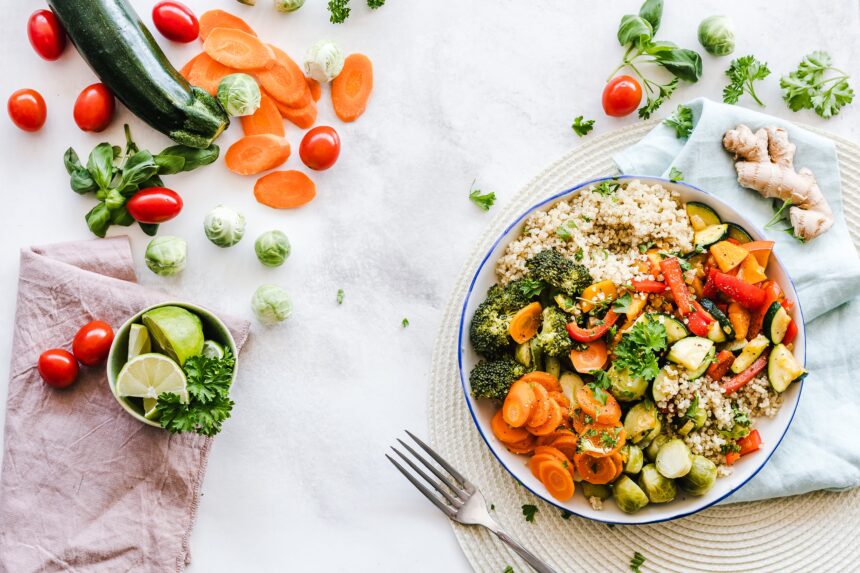Healthy eating is very important to maintain your overall well-being, and what you eat every day contributes to your health. You must eat a variety of food that gives you the nutrients you need to maintain your health, feel good, and have energy. These common nutrients include protein, carbohydrates, fat, water, vitamins, and minerals, they help your body stay strong and healthy. Here are some tips for everyday healthy eating.
Consume Lots of Fruits and Vegetables; Fruits and Vegetables are vital in your meals, they will give you the Vitamins, Minerals, and Fiber your body needs to stay healthy. According to research, it is important to sneak fruits and vegetables into our meals as a lower intake of them can lead to an increased risk of some illnesses like cancer, stroke, and heart disease.
Don’t Skip Breakfast; you have heard the saying that ‘breakfast is the most important meal of the day’ This is so true, breakfast provides the body with the necessary nutrients and energy to start the day, and it also supports better cognitive function, memory, and concentration. Eating breakfast can also prevent overeating later in the day which can lead to added weight.
Hydrate Always; the daily intake of water per human per day according to studies is 2 liters of water or half a gallon. Proper hydration helps break down food, absorb nutrients, and prevent constipation. Insufficient hydration can contribute to kidney stones and urinary tract infections. Hydration is also linked to cognitive function, dehydration can impair concentration.
Limit Fried Foods; eating too much-fried food can lead to unhealthy outcomes such as increased risk of chronic diseases. Fried foods with a high carbohydrate content can lead to rapid spikes in blood sugar levels, which can increase the risk of insulin resistance and type 2 diabetes. Fried foods are cooked in oils that contain unhealthy fats most times, these fats can raise levels of bad cholesterol (LDL) which increases the risk of heart disease.
Eat Lean Proteins; lean proteins such as fish, tofu, seafood, eggs, and skinless chicken and turkey breast are lower in calories and saturated fats, they help reduce the intake of calories while providing essential nutrients. Since they are lower in saturated fats, they help lower levels of bad cholesterol (LDL) and raise levels of good cholesterol (HDL).
MUST READ; 8 Benefits of Yoga – FOOD-AN-HEALTH (foodanhealth.com)
Avoid Soda; sodas are primarily loaded with sugar, and consuming excessive sugar can lead to weight gain, obesity, and increased risk of diabetes. Soda is acidic and sugary, which can erode tooth enamel and increase the risk of cavities and tooth decay. The phosphoric acid in colas can also weaken tooth enamel. Soda does not hydrate the body well, it can lead to increased urination which can lead to dehydration.
Have a Meal Plan; planning your meal can help you make conscious and nutritious food choices, it helps you incorporate a variety of fruits, vegetables, lean proteins, and whole grains into your diet, which promotes a balanced and healthier eating pattern. It is also beneficial for people with specific dietary needs and health conditions, it helps them tailor their food choices to manage these conditions effectively.
Consume Less Sodium; Sodium contributes to high blood pressure (hypertension), and reducing sodium intake can help lower and manage blood pressure. Also, it can reduce the risk of some complications associated with hypertension such as eye problems and cognitive decline. High sodium intake can lead to fluid retention and swelling which can be problematic for individuals with heart or kidney conditions since sodium plays a role in regulating fluid balance in the body.
Forming healthy eating habits takes time and consistency, it is also important to aim for a balanced diet instead of focusing on a particular type of food. By incorporating this tip into your eating routine, you can maintain a healthy eating approach that will benefit your overall well-being.


